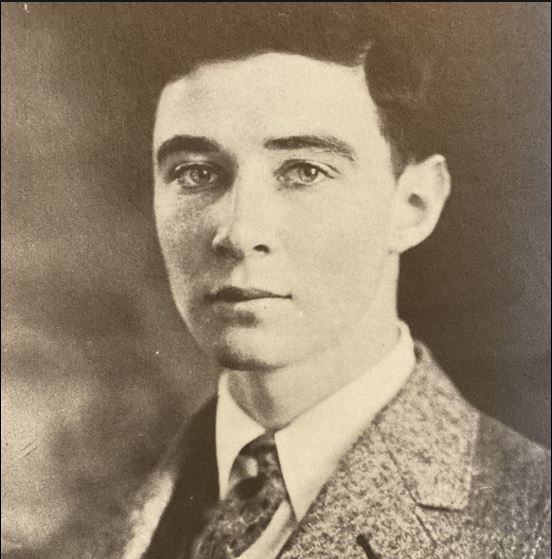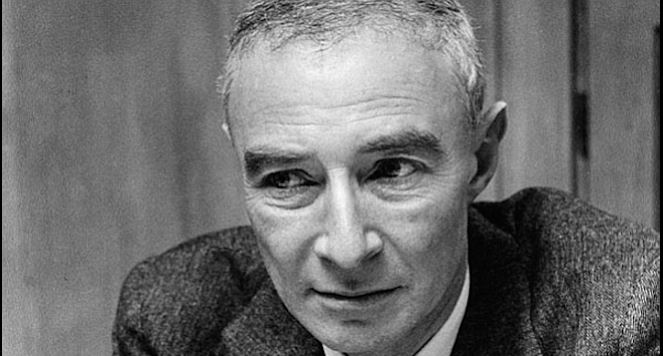Here’s How the Atomic Bomb also Destroyed the Life of Oppenheimer
In the annals of history, few figures embody the paradox of scientific genius and moral complexity as profoundly as J. Robert Oppenheimer. Best known for his leadership in developing the atomic bomb during World War II, Oppenheimer’s story is one of extraordinary intellectual achievement shadowed by ethical dilemmas and political controversy.

Early Life and Intellectual Prowess
Julius Robert Oppenheimer, often remembered as the “father of the atomic bomb,” remains a figure of great intrigue and complexity. His life story intertwines intellectual brilliance with deep moral quandaries, set against the backdrop of one of the most turbulent periods in human history.
Born on April 22, 1904, in New York City to German Jewish immigrants, Oppenheimer’s prodigious intellect was evident early on. Fluent in eight languages and with a fondness for poetry, his academic journey was nothing short of remarkable. After attending an elite private school in Manhattan, he pursued chemistry at Harvard but soon developed an insatiable appetite for physics. Despite health challenges, he graduated in just three years and continued his studies in Europe, focusing on theoretical physics after realizing his limitations in experimental work.

The Manhattan Project: A Turning Point
World War II marked a pivotal turn in Oppenheimer’s career. As the director of the Manhattan Project, he led the development of the atomic bomb, a task that combined his scientific acumen with the exigencies of war. Choosing the serene landscapes of Los Alamos, New Mexico, for the project’s site, he oversaw an endeavor whose cost eventually ballooned to an astounding $2 billion by 1945. The successful detonation of the atomic bombs over Hiroshima and Nagasaki, while effectively ending the war, opened a Pandora’s box of ethical dilemmas.

The Moral Weight of the Atomic Bomb
The aftermath of the atomic bombings brought a profound sense of guilt to Oppenheimer. Reflecting on the catastrophic loss of life and the ushering in of a new era of nuclear warfare, he famously quoted the Bhagavad Gita: “Now I am become Death, the destroyer of worlds.” This moment encapsulated the moral burden he bore, recognizing the irreversible impact of his scientific endeavors on humanity.

Political Controversy and Personal Struggles
Oppenheimer’s connections to communist circles in the 1930s and 1940s, compounded by his relationships and political leanings, later led to intense scrutiny. In the Cold War’s atmosphere of suspicion, these affiliations catalyzed his downfall. Accused of being a communist sympathizer, he faced a humiliating loss of security clearance in 1954, a decision that significantly tarnished his reputation and career.

Legacy and Death
Oppenheimer’s legacy is a tapestry of scientific triumphs and ethical introspection. His contributions to physics are undeniable, but his role in the development of nuclear weapons and his subsequent advocacy for nuclear disarmament paint a picture of a man grappling with the consequences of his own genius. He passed away from throat cancer in 1967, leaving behind a legacy that continues to provoke debate and reflection.
J. Robert Oppenheimer’s life story is a testament to the complexities of scientific discovery and its ethical implications. A brilliant physicist, he navigated the treacherous waters of scientific innovation, political turmoil, and moral responsibility. His legacy, encapsulated by his pivotal role in the Manhattan Project and his later life, serves as a reminder of the profound impact that scientific advancements can have on the world, for better or worse.

J. Robert Oppenheimer’s life story serves as a poignant reminder of the multifaceted nature of scientific endeavor and its far-reaching implications. His journey from the heights of scientific acclaim to the depths of moral questioning and political strife encapsulates the eternal struggle between human intellect and its responsibilities. Oppenheimer, forever etched in history as the “father of the atomic bomb,” remains a symbol of the dual-edged sword of technological advancement, challenging future generations to ponder the ethical boundaries of scientific exploration.
Staying on the path of science? Here’s an AI’s predictions for the next breakthroughs in science and tech!
